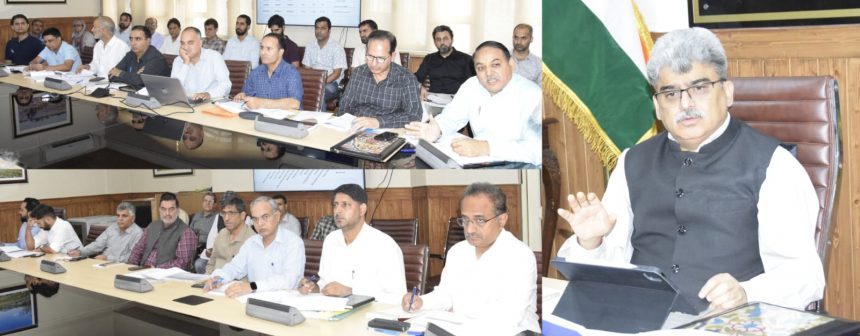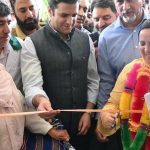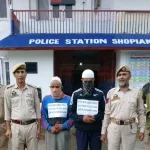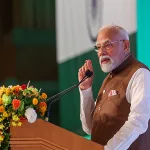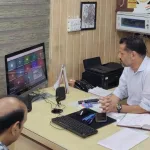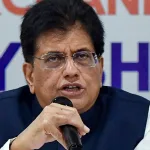SRINAGAR, JULY 19: Chief Secretary, Atal Dulloo, today chaired a comprehensive review meeting of the School Education Department to take stock of the teaching scenario and implementation of other education reforms in the Union Territory.
The meeting besides Secretary, School Education Department was attended by PD, Samagra Shiksha; Director, School Education, Kashmir/Jammu; Secretary, JKBOSE and other concerned officers of the department.
The Chief Secretary stressed on further improving the quality of education in government schools, highlighting the department’s substantial budget of approximately Rs 11,000 crore that should commensurate with the quality of education imparted.
Dulloo underscored the pivotal role of teachers, stating that “none of the infrastructural or technological upgradation would bear fruits unless the teachers do not play their roles in an efficient manner.” He further remarked that there is no alternative to the dedication and creativity of teachers in teaching the students.
The Chief Secretary emphasized the critical need to monitor the teacher punctuality and time spent in classrooms. He called for use of IT tools to identify teachers demonstrating a lackadaisical approach, tardiness or unauthorized departure from schools for personal matters.
He directed that teacher salaries be linked to their school attendance and lawfully availed leave. He was informed that JK Attendance App, a geo-coordinates-based face recognition attendance system, has already been implemented, with 1.14 lakh employees actively marking their attendance.
The Chief Secretary enjoined upon the senior functionaries of the department to conduct surprise visits, both physical and virtual, to schools, especially in remote areas, to assess the staff presence and teaching effectiveness.
Dulloo stressed the importance of utilizing the modern infrastructure such as ICT labs, Computer-Aided Learning (CAL) labs, smart classrooms, Atal Tinkering Labs and other available resources. He directed the department’s IT team to develop a dashboard for daily monitoring of IT infrastructure usage in each school. Currently, 1420 CAL Centers and 2036 ICT Labs and 4272 Smart Classrooms are fully operational across the UT.
Regarding vocational education, the Chief Secretary impressed upon the department for regular handholding and support to the vocational learners until they secure placements in the job market. Over 141,000 students from classes 9th to 12th were said to be currently enrolled in 15 different trades imparted in the schools.
Dulloo directed the department to exercise caution and make thorough preparation before adopting the ECCE model, emphasizing the extensive groundwork required for merging pre-primary education with childhood care in collaboration with the Social Welfare Department.
He asked for appointment of nodal officers for each zone to ensure the feasibility of such mergers and prevent difficulties for children seeking admissions.
It was informed that Pre-primary classes are scheduled to be initiated in 15,550 schools and 13,804 AAYAs/helpers have been engaged in schools with ECCE sections.
The Chief Secretary reviewed the progress on various works under different schemes, including establishment of Kasturba Gandhi Balika Vidyalayas (KGBVs), Girls Hostels, modern infrastructure and particularly the PM SHRI scheme in designated schools across the Union Territory.
While throwing light on the overall educational landscape of J&K, Secretary, SED, Ram Niwas Sharma, revealed that 20 districts had been distributed into 188 Education Zones (Jammu: 97, Kashmir: 91) for managing the affairs of the department.
He also revealed that the literacy rate (UT, NSO Survey 2017) has been shown as 77.30% across the UT. He added that J&K has total schools strength of 24,137 (18,724 Govt. and 5,413 Pvt. + Other) with a cumulative enrolment of 2,617,817 students (1356838 in Govt+ 1260979 in Pvt Institutions) from Primary to Higher Secondary level.
The meeting was also apprised that the total budgetary allocation for the department for FY 2025-26 is Rs. 11,356.43 crore (including UT Capex and CSS) with an overall approved budget allocation of Rs. 13,492.27 crore. It was added that the expenditure on each enrolled student in a government school accrues to around Rs 1 lakh/year which is much higher than the national average.
It was further divulged that in J&K 396 schools had been selected for being taken up under PM SHRI programme.
Regarding the Vidhya Samiksha Kendra, it was informed that it has fully been completed and operational in Jammu, ensuring data-driven decision-making and improved educational outcomes. Four chat bots (Smart Attendance J&K, J&K Study Buddy, Field Monitoring Bot, J&K Parent Pulse Bot) have been rolled out, so far, from there.


